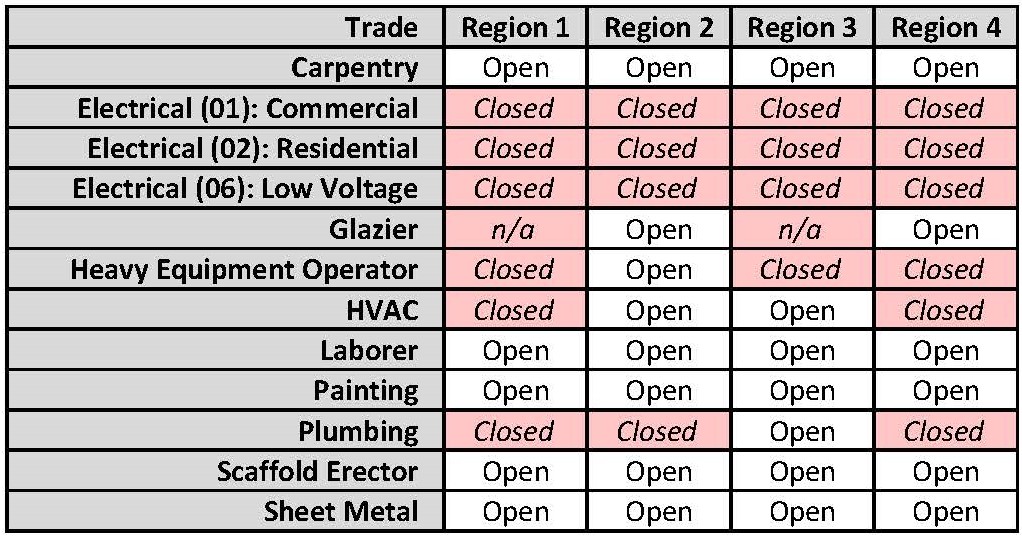Laborer Apprentices will perform tasks involving physical labor at construction sites. Laborers may operate hand and power tools of all types: air hammers, earth tampers, cement mixers, small mechanical hoists, surveying and measuring equipment, and a variety of other equipment and instruments. They may clean and prepare sites, dig trenches, set braces to support the sides of excavations, erect scaffolding, and clean up rubble, debris and other waste materials.
Laborer Apprentices will learn tasks related to their craft through on-the-job training (OJT) and classroom training (related supplemental instruction (RSI)). The Laborer Program requires 6,000 OJT hours and 480 RSI hours (160 per year) to complete.
To qualify for CITC’s Construction Craft Laborers Program you must furnish the following documents:
- Proof of age (must be 18 or older)
- Proof of high school graduation or GED
- Official transcript(s) showing courses and grades
- Valid Driver License
After submitting the applications and required documents, you will be scheduled for an interview with the Laborer Apprenticeship Committee. If you pass the interview, you will be placed in an employment eligibility pool. Once you begin working for a participating employer, you become a CITC registered apprentice.
EEO STATEMENT
CITC programs are open to the public. CITC encourages diversity and accepts applications from all minority populations. CITC does not discriminate on the basis of race, creed, color, national origin, sex, veteran or military status, sexual orientation, or the presence of any sensory, mental or physical disability or the use of a trained guide dog or service animal by a person with a disability. CITC acknowledges that information pertaining to an applicant’s disability is personal and confidential. If the information is presented, CITC will reasonably attempt to provide accommodation to overcome the effects of the limitation of the qualified applicant. All inquiries about accommodations should be made to the Lead Office Administrator/Registrar upon registration into the program. Some programs may require medical documentation due to the rigors of the program. CITC operates under FERPA Statute 20 USC Section 1232 and regulation 34 CFR Part 99.



